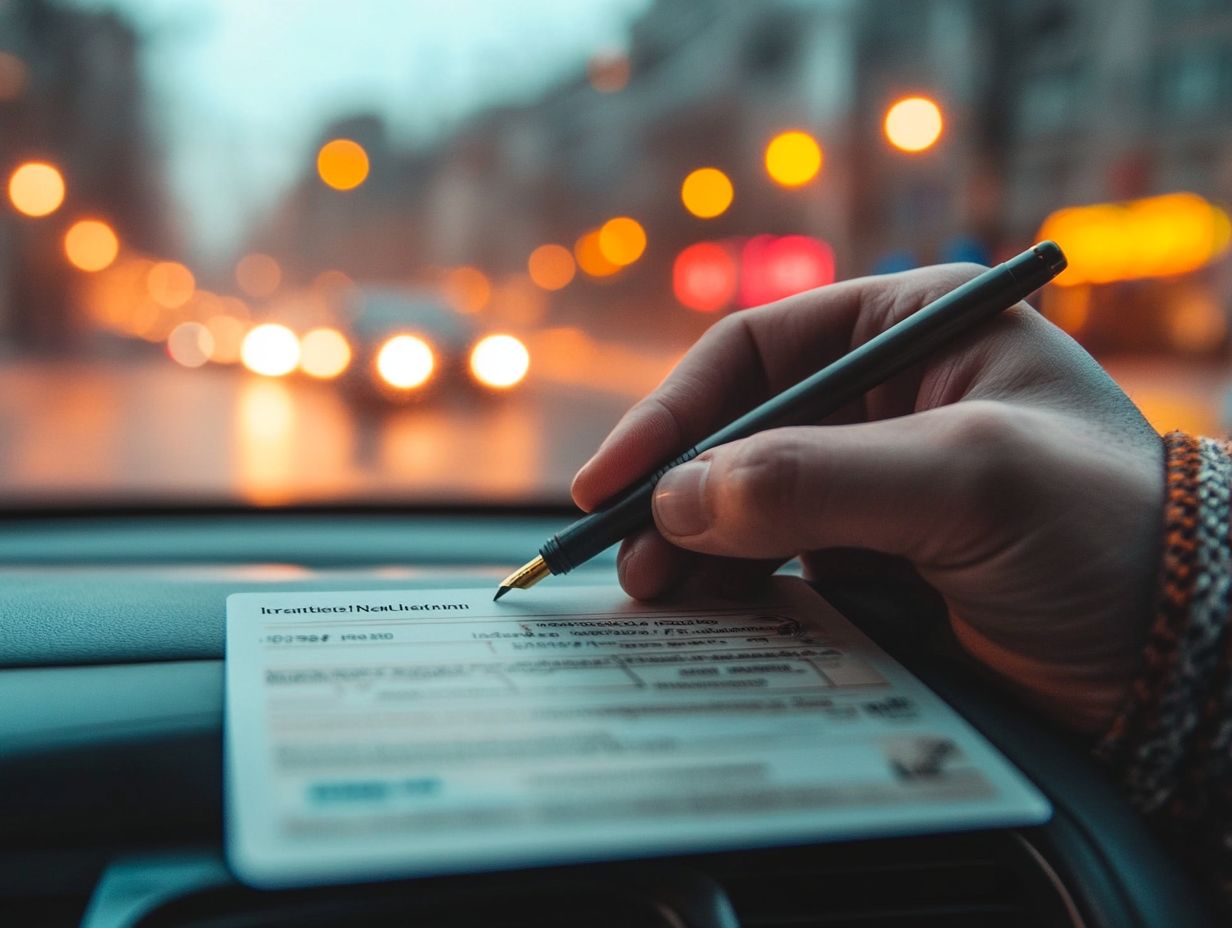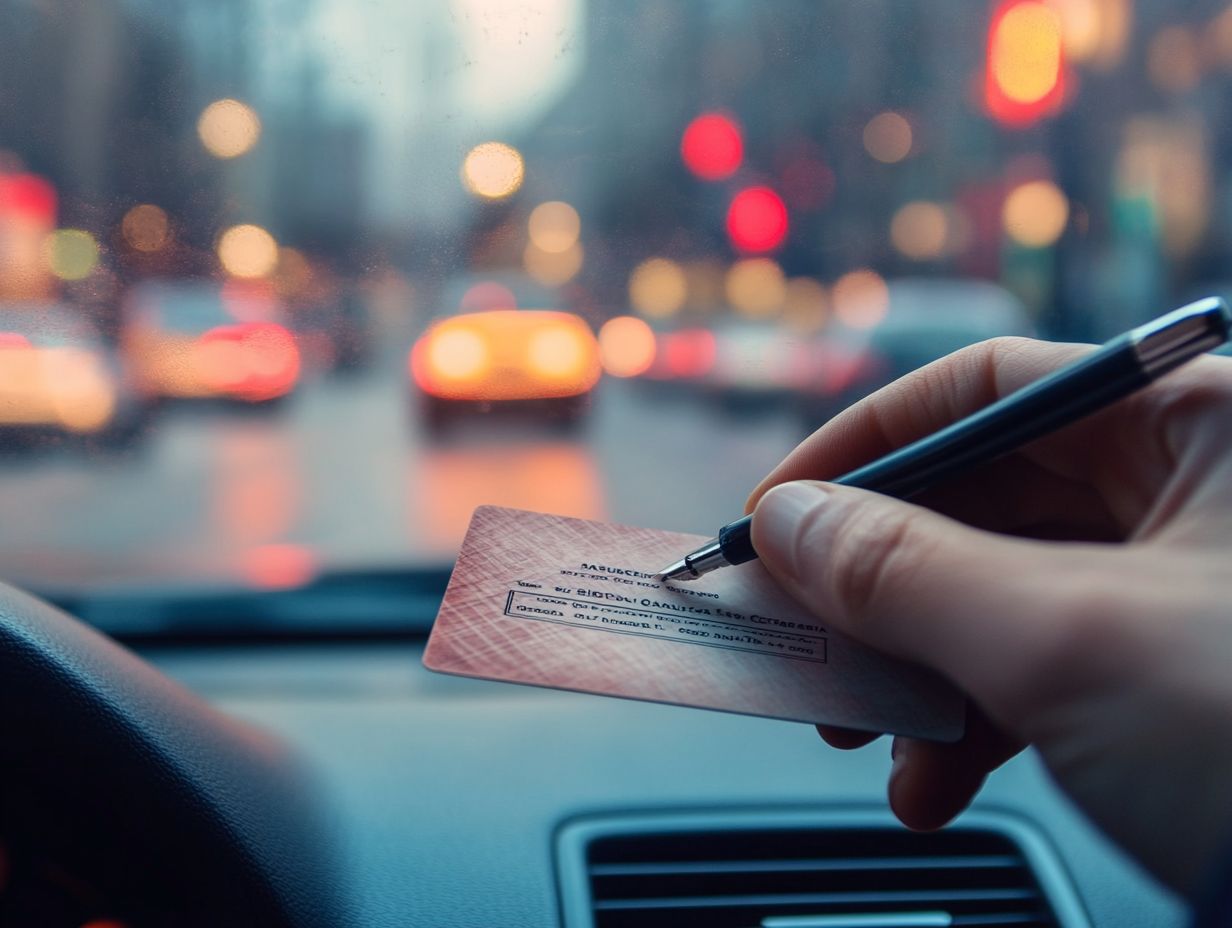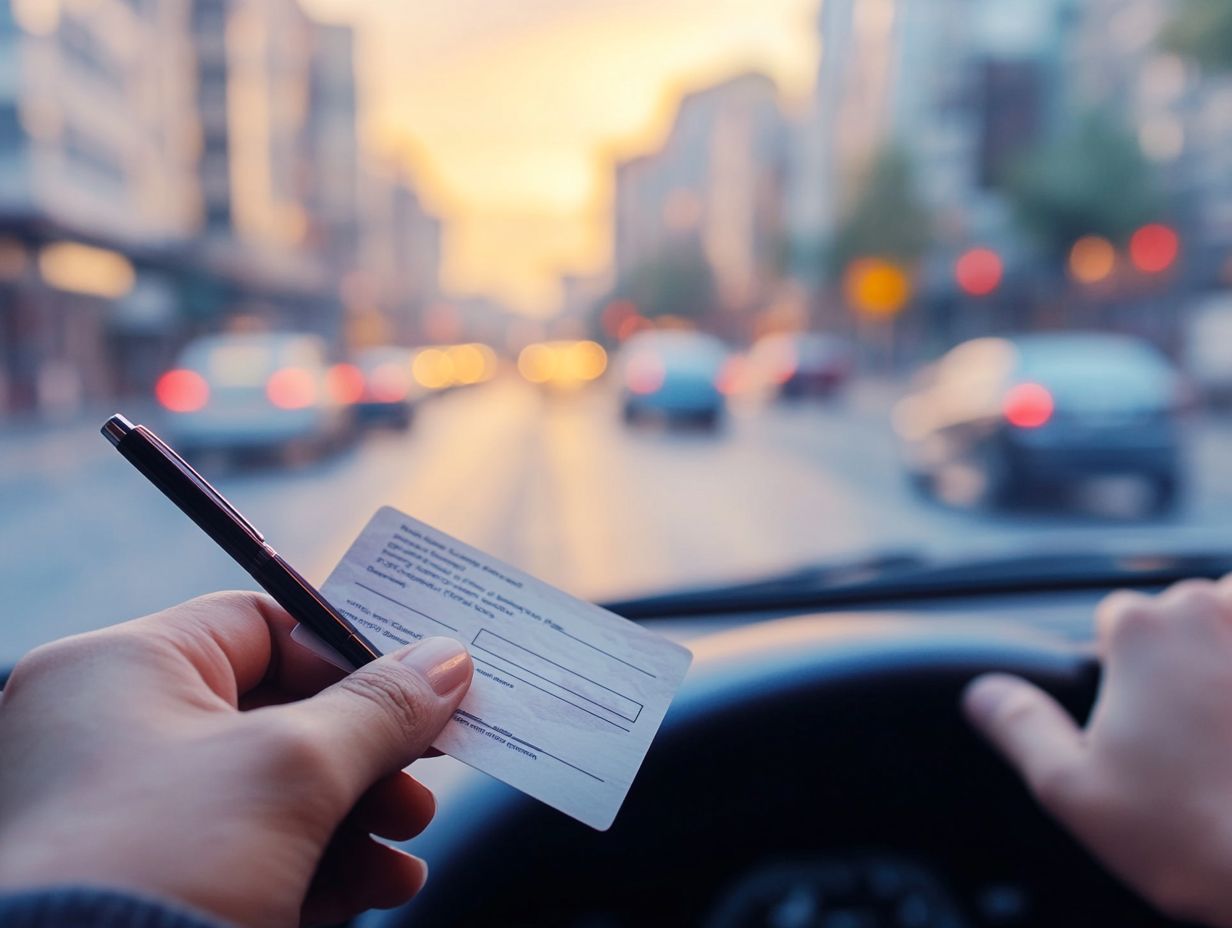Is Auto Insurance Required by Law?
Navigating the world of auto insurance can indeed feel like a daunting task. Grasping the laws that govern it is essential for every driver.
From state-specific requirements to minimum coverage levels, this guide meticulously outlines everything you need to know about auto insurance laws. It delves into the repercussions of driving uninsured, highlights various exceptions, and underscores the numerous benefits of having coverage.
You ll find practical tips to help you find affordable options that fit your needs. Get ready to take control of your insurance journey! Understand the laws to protect yourself and your wallet.
Contents
Key Takeaways:

- Auto insurance is required by law in almost every state in the US.
- Minimum coverage requirements vary by state, but typically include liability, personal injury, and property damage coverage.
- Driving without insurance can result in fines, suspension of license, and even legal consequences such as jail time.
Overview of Auto Insurance Laws
Understanding auto insurance laws is essential for every driver, particularly in states like California. Specific insurance requirements must be adhered to in order to show that you can pay for damages if you cause an accident.
Auto insurance offers various coverage options that safeguard you in the event of accidents, theft, or damage to your vehicle. It also ensures compliance with DMV regulations, which require proof of insurance for vehicle registration.
Staying informed about these laws not only protects you but also provides peace of mind as you navigate California’s highways.
Understanding State Requirements
Every state in the U.S. has its own auto insurance requirements shaped by local laws. It is vital for you to grasp the specific insurance regulations in your state, such as those enforced by the DMV in California.
Each state sets minimum liability limits that generally cover bodily injury and property damage. This ensures you can provide financial protection in the event of an accident.
To register your vehicle, you ll typically need to show proof of insurance, serving as verification that you can meet your financial responsibilities. The DMV plays a key role in regulating this process, ensuring all vehicles on the road are adequately covered.
Different states approach the issue of uninsured motorists in varying ways. Some impose hefty fines or penalties, while others might offer programs designed to assist these drivers in obtaining affordable insurance policies. Understanding these nuances is essential for navigating the complexities of auto insurance in your state.
Minimum Coverage Requirements
Minimum coverage requirements for auto insurance differ from state to state. They typically encompass essential components designed to uphold your financial responsibility on the road.
These include:
- liability insurance
- uninsured motorist coverage
- collision insurance
- comprehensive coverage
Each element plays a crucial role in safeguarding your interests while driving.
Types of Coverage and Limits
Auto insurance presents a variety of coverage options, such as liability insurance, collision insurance, and comprehensive coverage. Each type comes with specific limits that can profoundly influence your financial responsibility in the event of an accident.
Liability insurance is crafted to handle costs related to injuries or damages you may inflict on others during an accident. Limits typically range from $25,000 to $100,000 or more, depending on your chosen policy.
Collision insurance, on the other hand, takes care of repairs to your vehicle following an accident, irrespective of fault. However, you will encounter a deductible that can differ significantly.
Comprehensive coverage protects against non-collision-related damages, such as theft or natural disasters, also with various limits to consider. Personal injury protection (PIP) is another vital aspect, covering medical expenses and lost wages for you and your passengers, no matter who is at fault.
Evaluating these diverse types of coverage and selecting adequate limits is crucial. Inadequate coverage can expose you to considerable out-of-pocket expenses, making informed choices essential for your financial peace of mind.
Start your search for the best auto insurance today and drive with confidence!
Penalties for Driving Without Insurance

Driving without insurance opens the door to serious penalties. These include substantial fines, legal repercussions, and potential restrictions on your driving privileges.
The DMV enforces insurance requirements with unwavering rigor. They ensure that every driver on the road upholds their financial responsibility.
Fines and Legal Consequences
The fines and legal consequences for driving without insurance can be steep. They vary significantly from one state to another.
Take California, for example. If you re a first-time offender, you could face fines between $100 and $200. If you fail to provide proof of insurance, your license might be suspended for up to four years.
Now, if you find yourself in Florida, brace yourself for even harsher penalties! Fines can exceed $500. Repeat offenders might also be required to complete mandatory community service.
Driving uninsured can leave lasting scars on your insurance profile. Once you restore your coverage, you might see your rates soar dramatically.
Insurers view a history of uninsured driving as a significant risk factor. This can further complicate your future vehicle ownership or financing options.
Exceptions to Auto Insurance Laws
While auto insurance laws are rigorously enforced in most states, special circumstances and exemptions exist.
For certain drivers, such as those who can prove their financial responsibility through a surety bond a promise from a third party to cover your financial responsibility it is possible to bypass the standard insurance requirements.
Special Circumstances and Exemptions
If you have unique circumstances, such as owning a vehicle that sees little use, you might qualify for exemptions. This includes the option to provide a surety bond.
For example, if you primarily use your vehicle for farming or agricultural activities, you could be eligible for reduced insurance premiums.
If you enroll in certain state-sponsored programs aimed at promoting eco-friendly transportation, you may also apply for exemptions.
To qualify, you’ll typically need to provide documentation that highlights your unique situation. This could include vehicle registration details or proof of participation in the program.
The application process usually involves submitting the necessary forms to your state s Department of Motor Vehicles or insurance regulatory body, along with any required fees.
Benefits of Having Auto Insurance
Having auto insurance isn t merely a legal obligation; it serves as a vital safeguard. It grants you invaluable financial protection and peace of mind.
It shields you from the substantial costs tied to accidents. You’ll also find a range of coverage options tailored to your specific needs.
Financial Protection and Peace of Mind

The primary benefit of auto insurance lies in the financial protection it provides against unexpected events. You’ll navigate California roads with confidence, knowing you re covered for damages and liabilities.
This coverage includes several options. For instance, liability insurance shields you from costs related to damages you may cause to others in an accident.
Comprehensive coverage protects against non-collision incidents, such as theft or natural disasters. Collision coverage addresses the repair costs for your vehicle after an accident.
Uninsured or underinsured motorist coverage ensures you aren t left vulnerable if you encounter someone who lacks adequate insurance.
With these various choices at your disposal, auto insurance eases the burden of potential financial strains. It also enhances your sense of security, letting you fully enjoy the stunning scenic routes that the Golden State has to offer.
So, are you ready to protect yourself and your vehicle?
How to Find Affordable Auto Insurance
Securing affordable auto insurance demands careful planning, where you weigh multiple factors. Checking prices from different companies is essential to uncover the best rates and coverage options tailored to your unique needs.
By putting in the effort, you can find a policy that fits your budget and offers you excellent protection!
Tips for Finding the Best Rates
To find the best rates for auto insurance, engage in thorough comparison shopping. Evaluate offerings from various insurance companies to identify the most cost-effective solutions.
Using online comparison tools can streamline this process, allowing you to assess multiple providers side by side. Reading customer reviews is also important as it provides valuable insight into the service level and claims handling elements that are as crucial as the price itself.
Understanding the nuances of different insurance policies and coverage levels is vital. For instance, one policy may offer comprehensive coverage at a higher premium, while another might exclude elements that could lead to significant out-of-pocket expenses later. By considering these factors, you can make more informed decisions that align with your needs and budget.
Frequently Asked Questions
Is auto insurance required by law?
Yes, in most states, auto insurance is legally required to operate a vehicle.
What happens if I don’t have auto insurance?

If you are caught driving without auto insurance, you may face penalties such as fines, license suspension, or even jail time.
What type of auto insurance is required by law?
The specific type of auto insurance required by law may vary by state, but typically it includes liability coverage for bodily injury and property damage. To understand the specifics, check out what is the minimum auto insurance requirement.
Do I need auto insurance if I don’t own a car?
If you frequently drive a car that you do not own, you may still be required to have auto insurance. Check with your state’s laws for more information.
Is there a minimum amount of auto insurance coverage required by law?
Yes, most states have minimum coverage requirements for liability insurance. However, it is always recommended to have more coverage than the minimum to protect yourself in case of an accident.
Can I be exempt from having auto insurance?
In rare cases, some states may allow certain individuals to be exempt from having auto insurance. This may include individuals with a valid exemption or religious reasons. Check with your state’s laws for more information.
Start comparing auto insurance today to secure the best rates!






